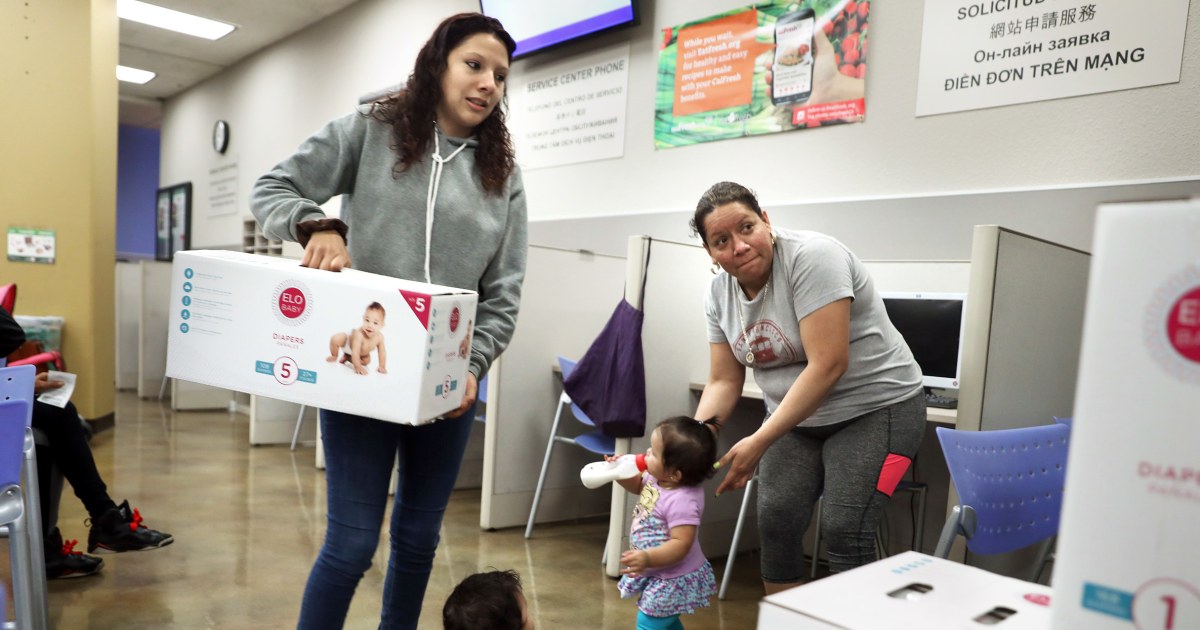
[ad_1]
Unless Congress settles on a stopgap resolution by midnight Saturday, the federal government is going to partially shut down. That would cause widespread disruptions that leave hundreds of thousands of government employees either furloughed or working without pay. And it could have even more disastrous effects on some of America’s most vulnerable people.
A shutdown would immediately halt funding for the Special Supplemental Nutrition Program for Women, Infants and Children, aka WIC, run by the Agriculture Department. WIC provides financial assistance for food to nearly 7 million low-income pregnant women, women who are breastfeeding, postpartum women and children up to age 5 at risk of hunger.
Many poor families may soon be surprised by a food emergency.
“If we have a shutdown, WIC shuts down, and that means the nutrition assistance to those moms and young children shuts down,” Agriculture Secretary Tom Vilsack warned Monday.
House Republicans, who are trying to use a government funding bill to ram through a host of hard-right policies, would be to blame for a shutdown and the suffering that follows. To many people, the idea of a government shutdown may sound abstract. But a shutdown would have tons of disparate real-world consequences, from disrupting food inspections to halting cancer research to slowing training needed by air traffic controllers. That’s on top of certain parts of our social safety net vanishing immediately.
Geri Henchy, director of nutrition policy at the Food Research & Action Center, told The Washington Post the spigot will close so quickly that if the government shuts down at 12:01 a.m. Sunday, WIC families could have their cards rejected at grocery stores as early as next week. It’s likely that many of the recipients wouldn’t know that the money had been shut off until they’re at the grocery store checkout. In other words, many poor families may soon be surprised by a food emergency.
If the shutdown goes on long enough, other food assistance programs could be affected. A new initiative to provide 3,000 high-need school districts with free breakfast and lunch could be delayed, according to the Post. And Vilsack said if a shutdown lasted beyond October, then “there would be some serious consequences” for the Supplemental Nutrition Assistance Program, or SNAP, which provides food assistance to some 40 million low-income Americans. In 2018, the shutdown lasted 34 days.
Sadly none of this is likely to faze congressional Republicans, whose plans for an open government include less assistance for WIC families. Their goal is to obtain such policy wins by holding the government hostage. House Speaker Kevin McCarthy, R-Calif., has also made extremist demands on immigration policy, including a proposal that construction be restarted on Donald Trump’s quixotic border wall.
Senate Republicans are more open to bipartisan legislation, and aren’t on the same page as House Republicans who are willing to let the government shut down as a bargaining chip for policy wins. Senate Minority Leader Mitch McConnell, R-Ky., has said that “shutting down the government isn’t an effective way to make a point.”
“The choice facing Congress is pretty straightforward,” he said. “We can take the standard approach and fund the government for six weeks at the current rate of operations, or we can shut the government down in exchange for zero meaningful progress on policy.”
McConnell, who has no small appetite for using disruption of governance as a political strategy, appears convinced that shutdowns are a political loser for his party.
In a way, that makes the standoff more depressing. A small group of extremists — the hard-right wing of the House Republican caucus — is pushing legislation that has no realistic chance of making it through the Senate, thus setting us up for an extended shutdown.
It’s the kind of political theater that will cause an untold number of Americans to suffer.
[ad_2]
Source link
